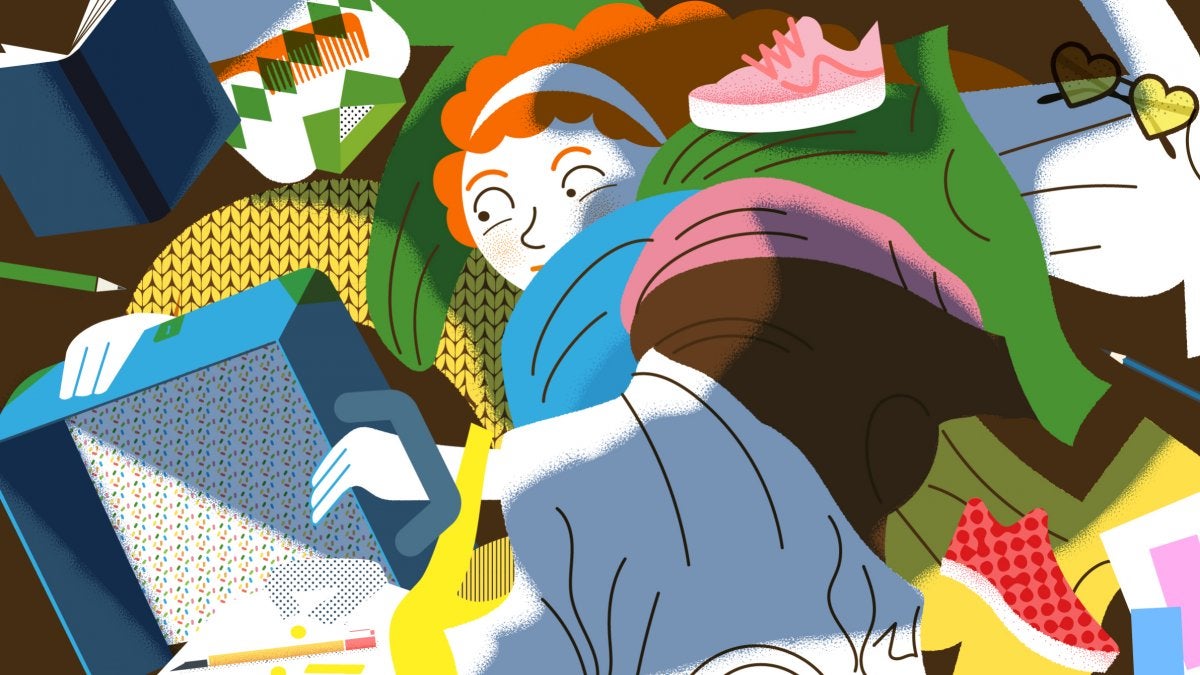No products in the cart.
Outdoor Adventure
I Can’t Wait to Chaotically Pack Again
The coconut crab is the world’s largest terrestrial arthropod, a terrifying creature that reaches up to three feet in length and in many ways resembles an unsettlingly substantial spider. Taxonomically speaking, it’s one of more than 800 species of hermit crab, all of which are born with naturally vulnerable, noncalcified bodies. An adolescent coconut crab must protect itself from predators by moving its tender little self from one portable container to the next (usually another gastropod’s shell) as it grows. It needs to move quickly once it has outgrown a shell, fending off predators or other crabs that will fight it for a new shelter.
These days, I’ve felt a lot like a defenseless young coconut crab when I scuttle from my cluttered home, panicked if I don’t have what I need at hand. My “trips” are mainly to the post office, the grocery store, or a hike, and before I head out, I find myself triple-checking that I’ve packed exactly what I need for my little outing. Like the hermit crab, personal safety is top of mind—it would be disastrous if I left without a mask—but it feels like a personal failure to forget any item (a pen, my wallet, warm enough layers), even if it’s a minor inconvenience, because that seems like the one thing that’s within my control.
When we can hop on a plane, or just walk down the street and see what happens, the bliss of spontaneity minimizes the sting of forgetfulness.
I wasn’t always like this. Back when it was safe to travel, I was a chaotic packer. While I worshipped at the altar of rolling one’s clothes for maximum space conservation, I otherwise feared no god or man when it came to preparing for a trip. Sure, I’d make a general list. I’d never forget my ID or passport and a reasonable amount of clothing. But packing wasn’t something to agonize over. I’d usually veer either too minimalist or maximalist, depending on the journey. I’d bring too many books backpacking (you never know what you’ll want to read until you’re in the tent) but would throw caution to the wind when deciding on layers (pack one good jacket and pray). I made plenty of errors, but none felt disastrous. In high school I brought only flip–flops on a group trip that involved a surprise ropes course; a quick gas-station stop provided an easy close-toed fix of knockoff Crocs. On my last trip before COVID, I brought wildly different clothing options for several days of kayaking and camping, and ended up wearing the same shorts and swimsuit the entire time.
Finicky packers want to predict the weather and their entire future, but what I miss about packing is accepting an unknowable fate. Nothing matters once you’re out the door! Whatever you forget is simply not joining you on the adventure. Most of these things you will think no more of once you get to your destination. Whatever you leave behind that was actually pretty important will make for a good story, probably. Using your wits, your newfound affection for the now multipurpose item you did bring, and whatever you find along the way are all part of the adventure in itself—in fact, that seems like the point of most fictional journeys. Recall that in The Lord of the Rings trilogy, among the most important items in Frodo and Samwise’s backpacks were lembas bread and the Light of Elendil, things they did not originally pack but picked up by making friends along the way.
Among the least serious, but still notable, effects of the pandemic is a loss of novel and spontaneous experiences—like meeting a frightening elf queen who actually ends up being really helpful once you get to know her. In our world, something as simple as running into a friend at the climbing gym enriches our lives, helping our brains adapt and change over time. Packing, in its own way, embodies the ease and joy we’ll regain when we can safely travel and be close to others. When we wear a groove into the same predictable routines or destinations, bringing the right item to complete a task becomes muscle memory. When we can hop on a plane, or just walk down the street and see what happens, the bliss of spontaneity minimizes the sting of forgetfulness. Maybe a lot of people feel this way, too: it’ll be an exciting day when I pack a bag and feel not a twinge of anxiety over what I might not bring because I’m too busy anticipating what hasn’t happened yet.
The coconut crab spends its youth hiding out in other gastropods’ shells, but eventually, it grows an exoskeleton of its own. It roams beaches along the Pacific and Indian Oceans, it frightens tourists, it sometimes eats a large bird. The coconut crab has no baggage; the coconut crab has everything it needs and nothing more.
Lead Illustration: Francesco Zorzi
Source link

